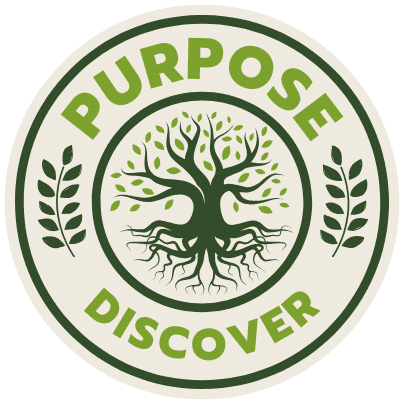Patience is often miscast as mere waiting, something passive and dull, like watching paint dry or sitting in traffic. But if you really peel back the layers, patience is anything but inert. It’s a fierce, quiet power that can pivot your entire understanding of yourself and the world around you. Personal insight — that rich, sometimes uncomfortable clarity about who you are — seldom shows up in a hurry. It is carved out in the slow, uneven rhythm of patience.
Think about those moments when life feels like a blur. We’re so obsessed with speed, results, and instant gratification that the idea of sitting with discomfort or uncertainty can feel like torture. Yet, it’s in that very discomfort that patience works its magic. Patience doesn’t just keep you from flipping out or quitting—it gently insists, “Stick with it, and you might find something you didn’t expect.” That something often turns out to be a deeper, sharper self-awareness.
What’s tricky is that patience doesn’t promise you instant clarity. It’s more like a stubborn gardener who keeps watering the soil even when nothing seems to sprout. You might think, “Why bother?” But what grows beneath the surface is often the most valuable—roots that anchor you in a turbulent world. When you rush, when you demand immediate answers, you might grab a surface idea of yourself, a snapshot that’s more about convenience than truth.
Why Patience Makes Self-Discovery Richer
Imagine a friend who can only tell you their story in bullet points versus one who unspools it slowly, with pauses and reflections. The first one might be easier to understand on the surface, but the second offers layers, contradictions, humor, and heartbreak. Personal insight thrives in those pauses. Patience gifts you the chance to sit with your contradictions instead of rushing to tidy them up. It’s about tolerating ambiguity—the messy, uncomfortable middle ground where real growth happens.
When I struggled with my own purpose years ago, I wanted a neat answer, a clear roadmap. Instead, life handed me a tangled ball of doubts, failed experiments, and moments of dazzling clarity that vanished almost as soon as they came. If I had pushed those moments away out of frustration, I’d have missed the slow unfolding of who I really wanted to be. Patience gave me the courage to stay with the confusion and learn from it, even when I felt like quitting.
Waiting Isn’t Passive. It’s Fiercely Active.
Here’s a surprise: patience is not a passive stance but an active engagement. It takes mental and emotional energy to resist the urge to rush, to scroll endlessly for answers or to jump onto the next distraction. Patience demands you hold space for yourself, even when that space feels empty or scary.
That space isn’t just a void; it’s where you wrestle with your assumptions, your fears, and your hopes. It’s where you catch glimpses of what really matters to you, away from the noise of the world. It’s the difference between skimming the surface of your life and diving into the depths. The latter requires a kind of bravery that too few of us credit patience for.
The Culture of Instant Everything: A Patience Antidote
Let’s be honest: we live in an age designed to throttle our patience. Our phones, social media feeds, and streaming services are engineered for immediacy. Waiting feels like a glitch, a bug in the system. But that system doesn’t nurture insight; it numbs it.
The irony is that the more we surrender to instant gratification, the less we understand ourselves. When was the last time you sat quietly for even ten minutes, not scrolling, not zoning out to background noise, just sitting with your thoughts? It’s terrifying for some, revealing for others. Yet it’s in these moments that patience flexes its muscles, and personal insight often slinks in the back door.
If you’re wondering how to start this practice, try it like a muscle. Don’t expect immediate rewards. The benefits accumulate quietly, like interest in a bank account you almost forget you have. Over time, waiting transforms into a rich soil for self-reflection.
Patience and Emotional Intelligence: An Unlikely Pair
Emotional intelligence often gets boiled down to “managing your feelings” or “reading others,” but patience is a secret ingredient in this recipe. Being patient with your own emotions means not shoving away sadness, anger, or confusion just because they’re inconvenient. It means acknowledging them and giving yourself permission to experience without judgment.
That’s tough because our culture pushes us to “fix” feelings fast. But emotional insight doesn’t arrive neatly packaged. It’s messy and slow. When you practice patience with your feelings, you gain a nuanced understanding of why you react the way you do, what triggers you, and what you actually need. This kind of insight is crucial for genuine growth and healthier relationships.
Patience in the Face of Setbacks
Personal insight is not some linear glow-up. It’s more like a cycle of advancements and setbacks, clarity and confusion. If you’re anything like me, setbacks can feel like personal failures. But patience invites you to see them differently. They are not dead ends but part of the terrain you must cross.
Think of patience as a compass that keeps you oriented when the path gets rocky. It prevents you from throwing in the towel when progress isn’t obvious. Every stumble, hesitation, or “backslide” contains clues about your values, your blind spots, and your resilience. The trick is to look at these moments not with frustration but with curiosity. And curiosity is a close cousin of patience.
How to Cultivate Patience Without Losing Your Mind
Anyone who’s tried to “be more patient” knows it’s easier said than done. It’s a muscle that needs exercising, but also a mindset shift. Here’s what helped me:
– Start small. Resist the urge to fix everything right now. Let some questions hang in the air.
– Practice mindfulness or meditation not as a grand spiritual practice but as a way to notice when you get impatient.
– Journal your frustrations and insights. Writing slows down your thoughts and lets you see patterns.
– Tell yourself it’s okay not to have all the answers. Actually, it’s more than okay—it’s necessary.
– Seek out stories of others who took their time to grow and learn. Nothing humbles you like realizing everyone’s path is a twisty, patient one.
By integrating these habits, patience becomes less of a chore and more of a lifeline.
If you want to explore more on the journey of finding your deeper self, check out this resource on discovering life’s meaning. It’s one of those places that honors the slow, sometimes frustrating, but ultimately rewarding process of personal growth.
When Patience Meets Purpose
Purpose and patience are an odd pair to think about side by side. We’re conditioned to chase purpose like it’s a finish line, some elusive trophy. But that impatience can actually cloud your insight. Because purpose often reveals itself in fragments, whispered through experiences you only understand in hindsight.
Patience lets you listen long enough to piece those fragments together. It’s the gentle reminder that even if you don’t have a grand mission statement today, that’s perfectly fine. Sometimes, the waiting itself shapes your purpose, making it richer than any hurry could produce.
If It Feels Like You’re Stuck, That’s a Good Sign
People often mistake feeling stuck for failure. But what if it’s actually a sign that patience is working? When you stop rushing, the messiness of your current moment starts to lift, perspective broadens, and insight sneaks in from unexpected corners.
Let yourself “be stuck” without shame or panic. Ask what that stuckness is trying to teach you. You might find that it’s the patient space where your truest self is quietly waiting for you to catch up.
This isn’t a pep talk about “grinding it out” or “hustling harder.” It’s an invitation to slow down with purpose, to find strength in patience, and to trust that the best revelations come when you’re willing to linger a little longer.
If you want to dive deeper into the art of self-discovery and thoughtful living, this guide on how to uncover your true calling could be just what you need. It’s full of insight for anyone ready to step off the fast track and really get to know themselves.
Patience isn’t about surrender; it’s about showing up. It’s an active, sometimes uncomfortable, but always rewarding companion on the road to personal insight. So next time you feel the itch to rush, pause. Let patience do its quiet work. You might be surprised what it helps you find.

